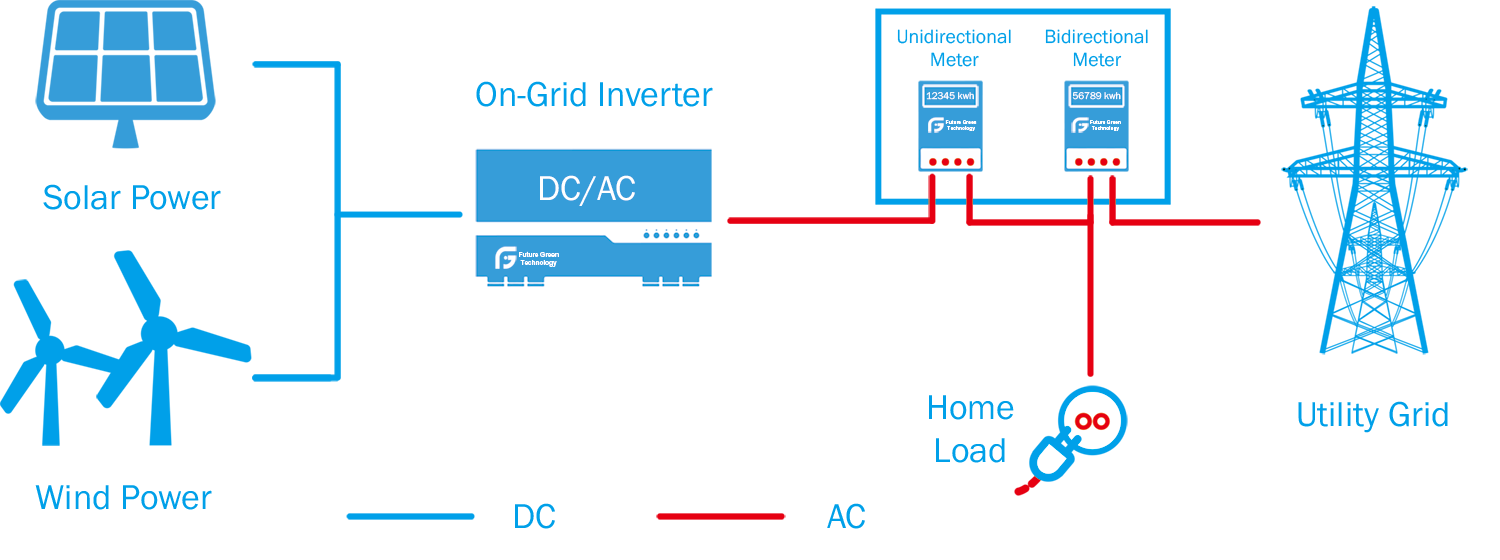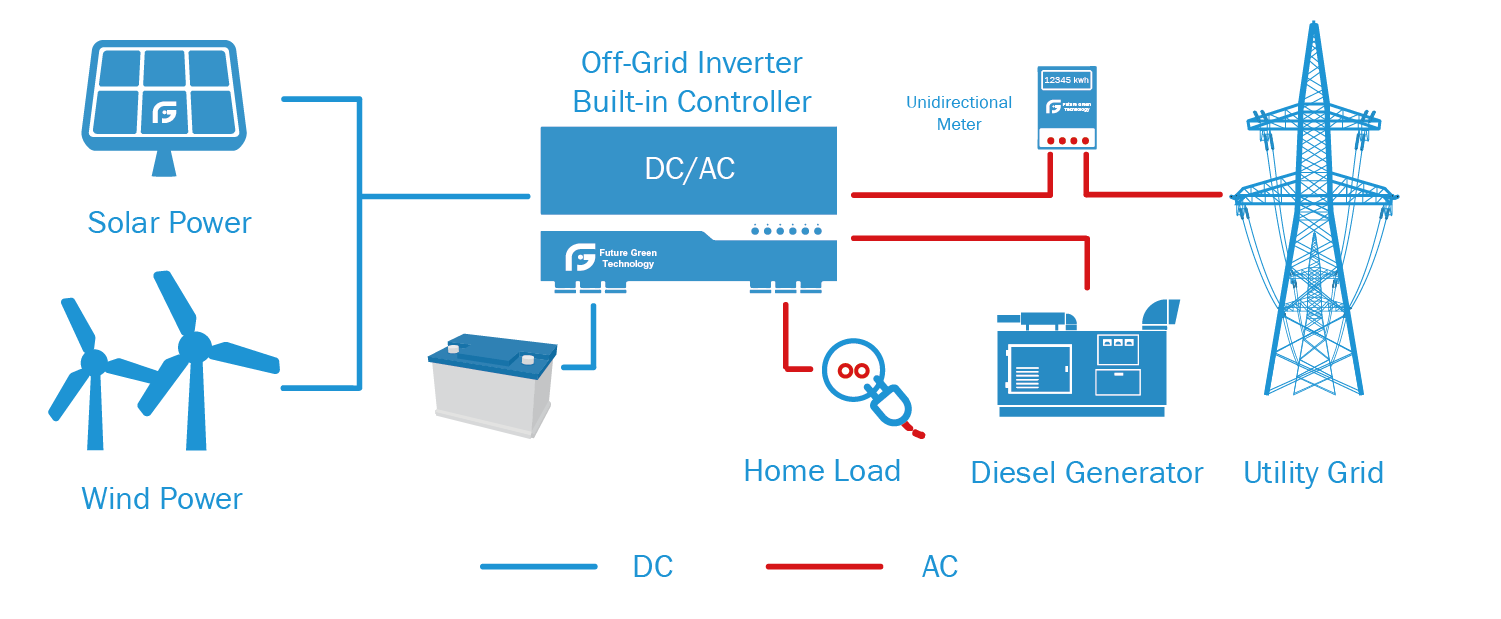The difference between On-Grid and Off-Grid Solar

Definition:
Grid-based systems are solar photovoltaic systems that generate electricity only when the public grid is available. They must connect to the grid to work. They can return excess electricity generated to the grid when you produce too much, which allows you to credit it for future use.
Advantages:
On-grid solar systems are very cost-effective and easy to install.
Businesses can recoup the cost of their investment by offsetting electricity bills in just 3-8 years. A business can completely depreciate the whole value of the project in approximately 4 years.
Residential user and business owners can earn a passive income for the surplus energy generated by the system.
Disadvantage:
These do not provide electricity during a network outage.
Applications:
Businesses can rely on on-grid solar systems to meet their daily requirements, as well as earn income from the excess power generated. On bright sunny days, buildings can generate enough solar energy to power appliances, lights, water heating systems, etc.
Equipment:
• Solar Modules
• Grid-Tie Inverter or Micro Inverters
• Power Meter
• Solar Panel Stand
• Accessories
Hybrid off grid solar Power system

Definition:
These systems allow you to store your solar energy in batteries for use when the network goes down or you are not on the network. Hybrid systems provide the energy needed to compensate for grid energy when the sun is shining and will even send extra energy to the grid for credit for later use.
Advantages:
These self-sustainable systems can work independently and do not rely on the grid.
They generate enough power that can be stored and used at night or when the power grid is down.
These are ideal for remote areas where there is no power access from the grid.
Disadvantage:
We can not expect the power to supply all your loads, because the cost and the volume of the batteries would be prohibitive. Off-grid systems require much more specialized equipment, which is more expensive and more complex to install.
Applications:
Electricity supply in rural and remote areas - Off-grid solar systems can facilitate independent, long-term and sustainable electricity generation in rural and remote areas.
Power back up in areas with frequent electricity cuts.
Equipment:
• Solar Modules
• Solar Charge Controller
• Battery Bank
• Off-Grid Inverter
• Solar Panel Stand
• Accessories
• Backup Generator (optional)
• Backup Utility Grid (optional)

 Monday -Sunday: 8:00 - 24:00
Monday -Sunday: 8:00 - 24:00 No.13 Shang Zhen East RD., Taihe Town Baiyun Area, Guangzhou China
No.13 Shang Zhen East RD., Taihe Town Baiyun Area, Guangzhou China info@futuregreenbattery.com
info@futuregreenbattery.com


